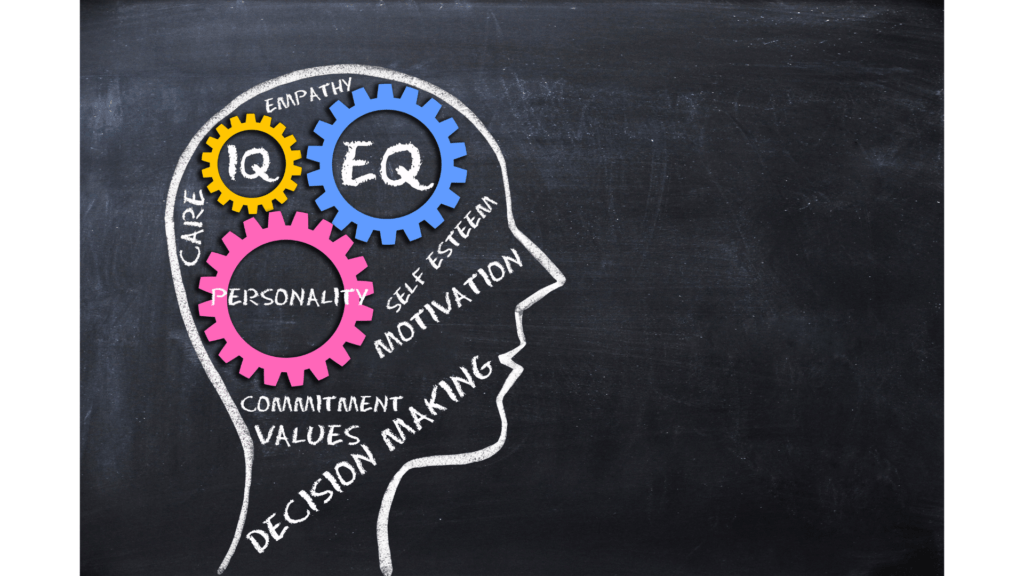Navigating Success: The Four Components of Emotional Intelligence

In the complex landscape of personal and professional growth, emotional intelligence stands out as a beacon guiding individuals towards success. Defined by psychologist Daniel Goleman, emotional intelligence comprises four crucial components that go beyond cognitive abilities. In this blog, we will explore these components and delve into how students can harness the power of emotional intelligence to thrive academically and in their future careers.

Self-Awareness: The Foundation of Emotional Intelligence:
The first pillar of emotional intelligence is self-awareness – an introspective journey that involves recognizing and understanding one’s own emotions. For students, developing self-awareness means being attuned to their feelings, strengths, and areas of growth. By acknowledging their emotional responses to various situations, students gain insight into their motivations, enabling them to make informed decisions and navigate challenges with resilience.

Self-Regulation: The Art of Emotional Management:
Self-regulation, the second component, involves managing and controlling one’s emotions effectively. In the dynamic environment of academia and beyond, students encounter stress, pressure, and unexpected hurdles. Cultivating self-regulation allows them to respond to these challenges thoughtfully. By avoiding impulsive reactions and maintaining composure, students can foster an environment of positivity, enhancing their focus and overall well-being.

Social Awareness: Nurturing Empathy and Understanding:
Social awareness, the third facet of emotional intelligence, emphasizes understanding and empathizing with the emotions of others. In a collaborative learning environment, students benefit immensely from recognizing the feelings and perspectives of their peers. Developing social awareness fosters effective communication, teamwork, and conflict resolution, essential skills that extend beyond the classroom and into future professional endeavors.
Relationship Management: The Key to Positive Interactions:
The final component of emotional intelligence is relationship management – the ability to navigate social interactions successfully. Students equipped with strong relationship management skills can build meaningful connections, resolve conflicts diplomatically, and collaborate seamlessly. These skills are foundational for creating a positive and supportive network, both academically and in the realms of future career opportunities.
As students embark on their educational journey, understanding and cultivating emotional intelligence becomes a vital asset. By honing self-awareness, self-regulation, social awareness, and relationship management, students not only enhance their academic experience but also lay a robust foundation for a successful and fulfilling future.
